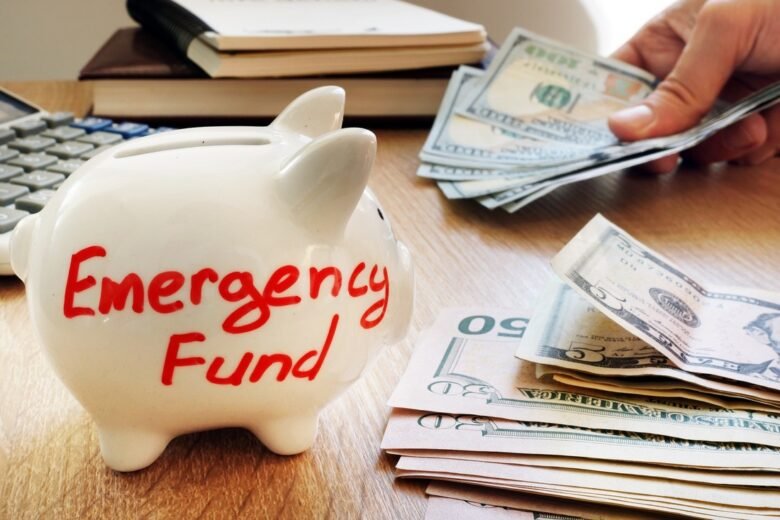Bumping into unpleasant surprises throughout life is a common norm. Every one of us has experienced emergencies that have called for a sudden repair of the car or a medical cost. This is exactly when the use of an emergency fund comes in; it allows individuals to maintain a budget. This is quite interesting because, after learning this concept, you will never think of it as just budgeting; rather, you will also understand the concept of it being inexpensive to keep.
The blanket of newfound knowledge on the topic of emergency funds effectively provides you with the ability to save up on extensive costs such as insurance. In this article, we will discuss why building an emergency fund will not only provide you with insurance on emergencies but will also give you profound leverage in that regard. Furthermore, there can be numerous consequences of this simple shift in one’s financial strategy.
What is an Emergency Fund?
Purposefully, to set aside money for unforeseen or unplanned situations, an individual opens an emergency fund, which is a form of an account. Think of it as being that warm helping hand reaching out to you when the world’s harshest of circumstances hit you. This fund is supposed to be used at times of crises, which can range from unwillingly losing a job due to global catastrophes to getting sick and not being able to afford it and desperately requiring medical assistance. Never, however, shall one use it for a holiday or buying a specific item, as the sole purpose of that fund is to help you through restraining times and enable you to recover your lifestyle in a more sustainable equation.
This fund is designed for unexpected instances, and thus most experts suggest leaving three to six months’ worth of living expenses. During such difficult seasons, this amount is sufficient to keep you feeling secure and calm. Furthermore, an emergency fund gives you the potential to tackle the never-ending hurdles head-on rather than waiting on the sidelines. Rather than rushing about looking for funds or using your credit card, you know that you will have the necessary means by your side when they will be needed the most.
The Importance of Having an Emergency Fund:
Keep in mind that an emergency fund is not just a way to cover unforeseen expenses but provides you with so much more. Be it the economy going through a recession or endless bills piling on, life has a way of throwing curve balls, which makes it unpredictable. An emergency fund allows you to deal with such curve balls with ease without having to turn to other forms of funds. Additionally, this fund is a source of comfort. Knowing that you are prepared for worst-case scenarios decreases financial stress. It allows you to go on through your life rather than thinking about what unexpected event might happen in the future.
Setbacks have a higher chance of occurring when there isn’t a substantial amount set aside for emergencies; this may be high-interest loans or credit cards. First of all, it is essential to construct an emergency fund that can act as a buffer or a safety net. It is important to have a sense of balance, which instills a richer understanding of managing both crops and farming equipment. This too reduces the chances of you going through a seemingly earth-shattering emotional crisis. Moreover, it makes you feel positive to be self-sufficient and able to face challenges head-on.
How an Emergency Fund Can Help Lower Insurance Costs?
An emergency fund can also lower your insurance cost. For example: if there is a risk of claim seemingly due to the cash savings, then this may be perceived positively by the insurers, which reduces the rates used to cover the risk (provided it is an auto or homeowners). The claim settlement ratio of that individual may lower, which can lower the premiums provided by the company. Moreover, there exist companies that expect the individual to settle a huge cost, and in return, they protect him from further risks.
You may opt to have higher deductibles leading to reduced premiums in subsequent months for various policies. The sum of these savings could be significant over an extended period. If you could allow yourself a high threshold to bear such costs, then you will not have to worry about claims often. The result is undoubtedly satisfying: stability and peace of mind.
Insurance Discounts Due to an Emergency Fund:
An emergency fund helps to get genuine discounts on insurance. For, say, mortgages, various companies give lower premiums to policyholders who have set medium cash balances for their plans. Think about car finance insurance for instance. If you have emergency cover, then you can increase the amount of out-of-pocket expenses, which results in a lower premium per month. For instance, increasing the amount of out-of-pocket expenses by $500 meant reducing costs by 10-15%. Any owner of a home can benefit from insurance emergency funds. After putting aside some funds, you may want to increase the degree of out-of-pocket expenses, resulting in a significant decrease in your expenses annually.
Some health insurance coverage plans also reward those who have surplus funds. They often offer bonuses or markdowns when a patient ably plans for budget consolidation. These are the illustrations that having that type of buffer not only defends you from the financial unknowns but also makes your entire financial management easier because you don’t have to spend so much on recurring expenses.
Advice on Protecting and Saving an Emergency Fund:
To start with this initiative, there is one step that may be of vital importance: set a target. Find out how much you would like to have in your emergency fund. A common objective is three to six months of living expenses. Then start devising a budget. Monitor how you earn and how you spend closely. Scout places where you can save, even if it is a small amount to begin with. Make savings automatic deposits wherever practicable. Initiate an appropriate account for your emergency fund and order regular transfers on each payday.
Windfalls can also be considered on the positive side. Tax refunds or bonuses can be cut into this budget without disrupting its normal operation. Keep focused and periodically make assessments of the achievements. Alter allocations if necessary, particularly when circumstances indeed pull the purse strings tighter. There are times when trouble knocks on our doors and we need money to cope with the situation; therefore, do try your best not to touch this emergency fund until efforts and times are gone into building it up.
Conclusion:
Creating an emergency fund is an exercise of more than just a void but rather a chance of building more than one ounce. It allows one to encounter unplanned events without going through the scars of debt. Without having a reserve fund, you lose the power of choice on what type of insurance you want to use and against what risk. That way, by having money available, one can choose to go for a higher deductible or a better coverage plan, which in turn can save money in the long run.
Additionally, this fund demonstrates independence in your financial decision-making. You are less prone to stress and subsequently make decisions that might come back to bite you later. As life’s circumstances change, have it at the back of your mind that being prepared not only helps to deal with challenges but also provides a sense of security. Changing your perspective on such issues should allow you to change your perspective on both saving and insurance. Accumulating an emergency fund is a step in the right direction towards building strong finances while allowing for better spending behavior.
FAQs:
1. What exactly is an emergency fund?
This is a special account that may aid in times of financial distress or help prevent a person from falling into a financial pit. It is money reserved for use in specific cases such as health issues, vehicle maintenance, or an involuntary absence from employment.
2. How much money should I keep in savings for emergencies?
It is generally accepted among some societies that people should save between three and six monthly payments of their expenses, presumably as an emergency fund. However, this is not a given and may vary depending on the needs and circumstances of the individual and the family.
3. Can my insurance premiums lessen just because I have funds set aside for emergencies?
Yes! People are aware that many insurance policies will give a discount for clients with a certain amount of savings set aside; when they see you being stable by having an emergency fund, they assume you are a less risky client and reduce your premiums.
4. Do you know the ideal location of your emergency money, say if you zip up your wallet and this is your last penny?
One way to grow your money risk-free while also being able to access it easily is by opening an interest-earning high-yield savings account or a money market account. This is also a strategic way to keep adequate insurance coverage at hand and make good use of the free funds during an economic downturn such as the COVID-19 pandemic or civil disturbances.
5. What else do you think can contribute to the financial stability of a regular citizen apart from savings?
You can start from very minimal targets and scale it up in benchmarks by looking at your expenditure plans. To start your emergency fund, getting in the habit of setting aside maybe fifty bucks monthly is a robust start. This ensures seamless operations and reliable contributions by setting up automatic transfers from alternate accounts to the saver’s account.




